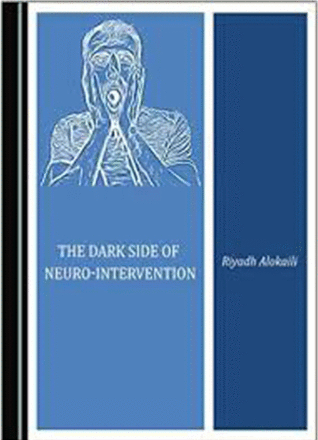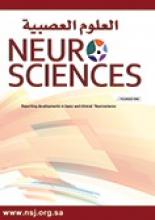
This book has a captivating title. It leaves the reader ambiguous as to what to expect, a didactic teaching in interventional neuroradiology or a focus on the bad outcomes of the profession. However, Dr. Alokaili accomplished a great work in producing an interesting book that encompasses the spectrum of what “neuro-intervention” is all about. First and foremost, the attribute of “gratitude”, he starts by acknowledging his mentors and his family members. This shows the importance of this in our lives in neuro-intervention. Second is the attribute of “humility”, Dr. Alokaili clearly demonstrated the human nature of the neuro-interventionalists. We are all prone to mistakes and mishaps and ought to be prepared for them. The third is the attribute of “accountability”, by briefly explaining the ethical and legal constraints that govern our profession. More importantly, throughout the cases; it demonstrates that suboptimal performances are not good enough and that the patient has to be offered full treatment and full follow up to ensure the longitudinal success of any neuro-intervention. Finally, the attribute of “scholarly cognitive ability”, neuro-interventionalists are not glorified plumbers. There is a lot of cognitive decision-making that goes hand in hand with the technical ability executed during these refined procedures. Dr. Alokaili thoroughly discussed each case and ended with a summary of our collective governing principles of the treatment of diseases encountered in neuro-intervention.
In concept, there are similar case-based-books to the “dark-side” but the intention of these books to show the “perfect-side” of the profession. For this reason, I am certain that the readers from diagnostic and interventional Neuroradiology, Neurosurgery, and Neurology would find a great return of investment in this book. The tremendous benefit of this book is worth it. It can be used for individual or group learning as well as, sparking interesting discussions. In a nutshell, the book will give the reader an enlightened insight into the dark side of neuro-intervention.
Hosam Al-Jehani
Head of the Neurovascular Unit,
King Fahad Hospital of the University, Imam
Abdulrahman bin Faisal University,
Dammam, Kingdom of Saudi Arabia
- Copyright: © Neurosciences
Neurosciences is an Open Access journal and articles published are distributed under the terms of the Creative Commons Attribution-NonCommercial License (CC BY-NC). Readers may copy, distribute, and display the work for non-commercial purposes with the proper citation of the original work.






